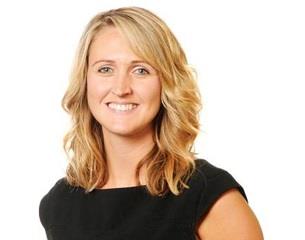The family-owned construction organisation integrated the two functions more than a year ago to enable it to develop a holistic wellbeing programme for its 1,600 staff.

Melisa Hanratty, HR programme manager at Wates Group, says: “We have different representatives, from both health and safety and from HR, and we have joined together to discuss the different elements of wellbeing.
“We decided our vision was to engage, empower and energise our employees to take ownership of their health so that they could develop their energy, resilience and personal performance within a risk-free, inspiring work environment.
“We wanted to get to a mix of engagement through employer-led and employee-led corporate activities. We started by seeing what we had in place.”
Health and safety compliance
As a construction organisation, health and safety compliance is at the heart of Wates Group’s activities. This is why health and safety remains an independent function, with safety, health and environment (SHE) advisers aligned to particular parts of the business to provide dedicated support.
Kelly Osborne, health and safety manager at Wates Group, says: “We are responsible for shaping and developing the SHE strategy for the group. However, we now hold strategic wellbeing development meetings with HR to get a more holistic view on how to improve this within the organisation.”
In terms of healthcare benefits, Wates Group offers employer-funded private medical insurance (PMI) to all full-time, monthly-paid staff as a core benefit, an employee assistance programme (EAP) and health screening, as well as a flexible benefits scheme through which staff can purchase additional PMI or dental cover for their dependants.
Hanratty says: “Although we have lots on offer, we have not been strategic about communicating all of this to our employee base in the past.
“We wanted to change this. Our aim is to work functionally across health and safety and HR, and with our suppliers, to maximise our employee offerings. This includes ensuring that our benefits complement the initiatives that are being undertaken.”
Communicating healthcare benefits
One of the ways that Wates communicates its healthcare benefits is through its White Van Roadshows, which are held three times a year. These national occupational health tours are aimed at engaging staff and raising awareness around some of the industry’s key occupational health risks.
Hanratty says: “The tour involves a Wates Group-branded van visiting our sites along with some of our key suppliers delivering health messages to the workforce, and carrying out practical demonstrations to showcase the solutions.”
This on-site approach to health and safety has included the introduction of on-site wellbeing kiosks, which were first trialled at Wates’ head office in Leatherhead in April 2013.
The kiosk provider, Wellbeing People, set up the kiosk early in the morning and, by 9:30am, all slots for the day had been booked. “The buzz the kiosk generated throughout the office was amazing,” says Hanratty.
“Everybody that went through a 10-minute check was comparing results and looking at what areas they needed to focus on. I really resonated with them. We were truly amazed at how excited people were by something like this, because it was very innovative and different to what we had done before.”
Rolling out wellbeing kiosks
Wates Group is currently rolling out wellbeing kiosks across its business. It has offices stretching from Glasgow down to Bristol, Leatherhead and London, and is working with Wellbeing People to decide the most effective way to reach all sites.
The aim is to have two kiosks, which will rotate across its sites throughout the year. Osborne says: “They would stay from around two weeks up to a month, depending on the size of the office.
“That will allow employees to monitor their own health in their own time. It’s a much more flexible option. The plan is to hit all our office locations nationally by the end of the year, and then it will be a rolling event for the years that follow.”
Hanratty adds: “With the flexibility of the kiosks, we are able to extend it beyond just our permanent employees. We have a lot of sites where we have contract employees. They will be able to use the kiosks as well.”
The HR and health and safety teams will work together to communicate the wellbeing kiosks to staff. Osborne adds: “There will be lot of promotional work to encourage employees to do it because it’s for their own benefit at the end of the day. We also want to get the message across that it is confidential and flexible.”
Communications will include poster launches, promotional material via email, details on the intranet site and quarterly newsletters in Wates’ internal magazine. “There is quite a wide range of areas where we would communicate that the kiosks are ‘coming to an office near you’,” says Osborne.
New occupational health provider
Last year, Wates went out to tender to change its occupational health provider. Hanratty says: “We switched because we wanted to move the thinking and work in a true partnership with our providers. We were unsuccessful in securing this with our existing provider.
“We met with a lot of providers to determine which one could best meet our needs, as well as providers that could work together so we could present a cohesive approach as part of our wellbeing package.
“Partnership working was a key element in our tender, and we think we have found this with Wellbeing People and our new occupational health provider.”
Wates Group’s previous occupational health provider had offered staff health screenings, every three years or every five years, depending on staff grade.
“That was about an hour out with an occupational health nurse that took them through a range of tests,” says Hanratty. “We wanted to maximise something like that, but make it more accessible to everybody.
“Rather than it just being a one-in-three-year or one-in-five-year event, we wanted it to be something that people could really get to grips with and make it land with them.”
Wates Group is currently finalising contracts with its new provider.
Health and wellbeing as responsibility
Wates Group has also signed up to the Public Health Responsibility Deal, the government’s challenge to improve public health by taking a collaborative approach to tackle the challenges caused by people’s lifestyle choices.
Osborne says: “Organisations sign up to the deal to demonstrate their commitment to helping to do this. We have identified and signed a number of pledges to support the responsibility deal and to provide details on how we intend to deliver this.”
Throughout 2013, as it tendered for a new occupational health provider and revamped the way it offered health screening to employees, Wates was able to develop a more cohesive approach to its health and wellbeing strategy, thanks to the co-operation between its HR team and the health and safety function.
Hanratty says: “We specifically set aside times to have wellbeing meetings where we discuss all the different options on the table. We have a small project group of key representatives from health and safety. We meet periodically as a team and discuss everything. We have gone through the whole tender piece as a team.
“Some elements might fall under health and safety and some might fall under HR, but we have worked together on it and chosen providers together to make sure we can work across the piece.”
Wates Group at a glance
Wates Group is a family-owned construction services organisation that was founded in 1897 by Edward Wates and his three brothers. It has grown to develop services across house building, general contracting and a plant business. Today, it has more than 1,600 employees at 16 sites across the UK.
Career histories

Melisa Hanratty has been HR programme manager at Wates Group since August 2013. She previously spent two years as HR operations manager at the construction organisation.
Her other roles have included HR business partner at NHS Hounslow and business process manager at British Airways. She also worked at Centrica for five years, where she held a range of HR manager roles.

Kelly Osborne has been a health and safety manager at Wates Group for more than 10 years. She joined the organisation as a document controller before moving into health and safety eight years ago.
She says: “I have worked for the construction and the retail and interiors businesses in this period, and am currently heading up the occupational health agenda on behalf of the safety, health and environment (SHE) team.”

- Employer-paid private medical insurance for all full-time employees.
- Additional cover for dependants available via flexible benefits scheme.
- Employee assistance programme.
- On-site wellbeing kiosks.
- Occupational health.
- Critical illness cover available via flexible benefits.
- Dental cover available via flexible benefits.
- Life assurance for all full-time employees.











